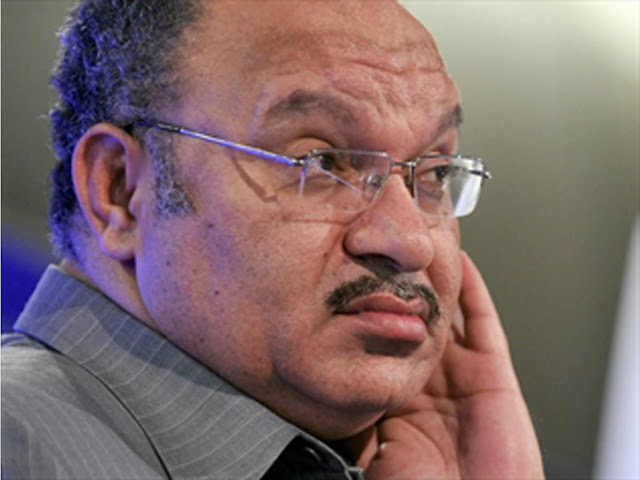Peter O’Neill’s arguments do not stand scrutiny
Peter O’Neill’s argument against stepping down or resigning as Prime Minister in order to allow law enforcement authorities to do their job of investigating allegations of crimes or misconduct in office is that there is no ‘evidence’ of any wrongdoing on his part. Based on this, he has fought tooth and nail, both in court and out of court, to stay on in the office of Prime Minister of PNG. The out of court tactics he has used (killing the Task Force Sweep, changing justice minister, removing police commissioner, trying to remove the chief magistrate, etc) are clear signs of a power-hungry individual. The in-court battles he has fought will not come out in his favor in the end, because lawful processes of the Police, Prosecution, Leadership Tribunal, etc are all guaranteed under the Constitution, and the Supreme Court is likely to uphold this clear principle of good governance.
Two fallacies of O’Neill’s argument concerning ‘lack of evidence’ are as follows.
One, it is not for him to determine whether there is evidence of any wrongdoing, because only a court can make that determination. And the ridiculous thing is that when the court (and Tribunal) want to make this determination, he finds a way to put a stop to that. So, it seems that only HIM will continue to make this determination, albeit only temporary. I do not believe the Constitution has given him (or any body else who has been alleged to gave committed a crime) to make such a determination. Everyone else submits to the due process of the law, so who is Peter O’Neill to not to do the same? If it is because he is the Prime Minister, then this is a clear abuse of his office.
Indeed, it really should be the other way around; i.e., because he is the Prime Minister he should be the first person in the country to show respect for the public office he holds and do two three things: one, he should resign from office; two, he should voluntarily attend at the police station and answer questions that the police have; and three, he should cooperate with the police and leadership code authorities to have any case started against him heard and determined. I would say that that would be the marks of a true leader who cares about protecting the integrity of the office of Prime Minister. This is not to say that he will forgo his individual Constitutional rights, because the recognition of his rights are integral in the legal processes involved, and so his rights will be observed as a matter of course.
Two, the only criteria under the Leadership Code (s.27 Constitution) that Peter O’Neill (or any other such leader) is required by this Code to be concerned about is to ask himself if his conduct (or what is alleged against him) may give rise to ‘doubt in the public mind’ as to whether he ‘could’ have a conflict of interest or he ‘might’ be compromised or his conduct ‘demeans’ the office of Prime Minister or his conduct has allowed the integrity of the office of Prime Minister to be called into question or his conduct has endangered or diminished the respect for and confidence in the integrity of government of PNG.
The general public of this country may not know these exact wordings of the Leadership Code, but it is their general understanding of things that can be sufficient to warrant a leader to resign, submit himself to the law, and cooperate with law enforcement authorities. The bottom line in the Leadership Code is the protection of the name and integrity of the public office that the leader holds. In my mind, Peter O’Neill has clearly forgotten about this very important principle.







